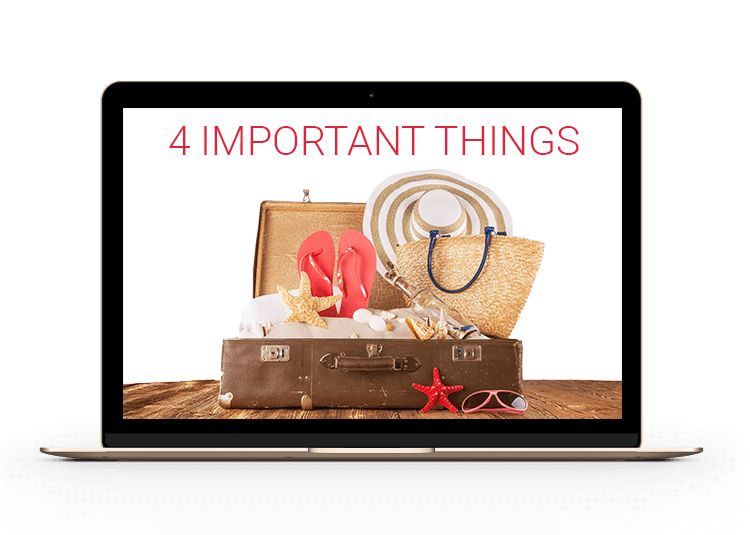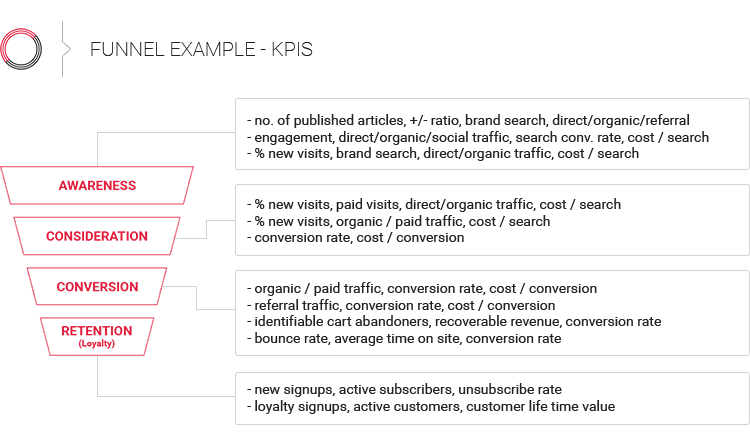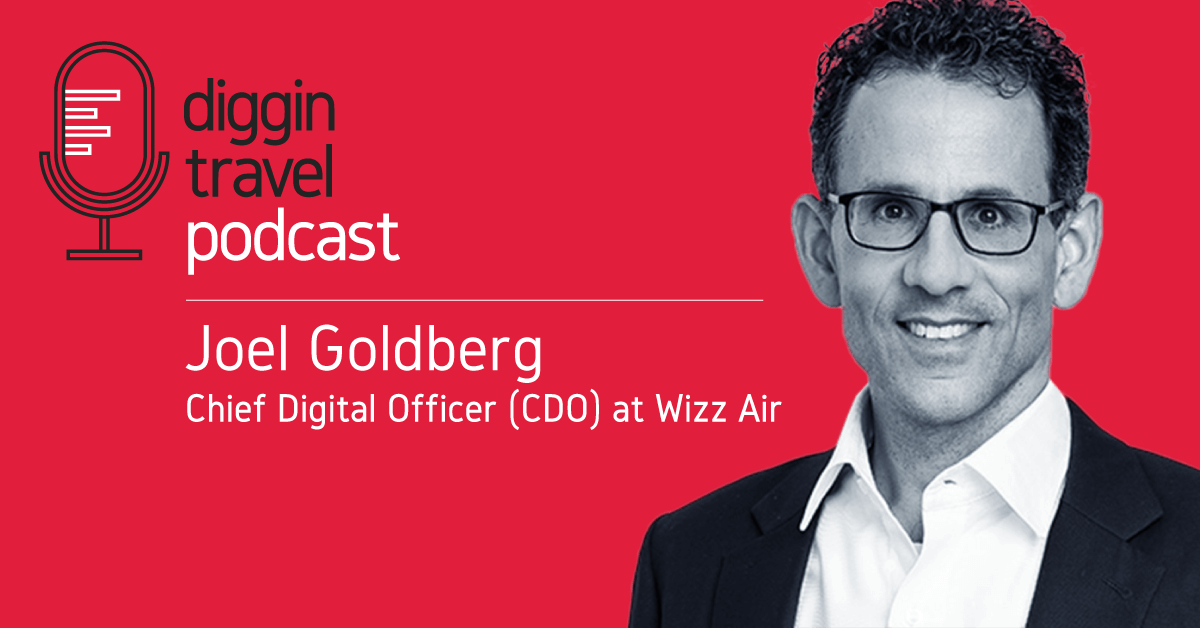Select Sidearea
Populate the sidearea with useful widgets. It’s simple to add images, categories, latest post, social media icon links, tag clouds, and more.


hello@youremail.com
+1234567890
+1234567890
Populate the sidearea with useful widgets. It’s simple to add images, categories, latest post, social media icon links, tag clouds, and more.


Iztok Franko

One of the key goals of starting the Diggintravel Podcast was to provide you insights through digital and other airline industry leaders. So, as a part of the 2020 Airline Digital Trends Series, I’ll talk to various airline Chief Digital Officers (CDOs) and people who are involved with airline digital and ecommerce.
You can see our past interview where we talked airline digital strategy with the CDO of EL AL Israel Airlines here. We talked about how to do digital transformation in a traditional, legacy airline environment – and if you’ve ever dealt with the complexity of an airline legacy system, you know that is a big challenge!
But today I want to talk about what might be an even bigger challenge. Are you curious about what it is?
These days, you can see many airlines talking about becoming digital companies and investing in their digital programs. We see many airlines opening digital labs, and some are establishing new digital companies, like Eurowings did with Eurowings Digital.
Qantas CEO Alan Joyce even said the airline will have more digital workers than pilots or engineers in the next decade because of the emphasis on digitalization.
But is this feasible? Will hiring an army of digital people really help? More importantly, how can you run a largescale digital program while maintaining low cost?
I couldn’t think of any better person to talk to about that than the CDO of one of the fastest growing low cost airlines in the world. Joel Goldberg, CDO of Wizz Air, looks at this challenge a bit differently:
We don’t throw people at problems, so it forces us to try to figure out more innovative ways to solve for that.
We’re evolving to this company that everyone needs to be part of that digital workforce. Everyone needs to have a digital mindset, and everyone needs to understand and be able to think creatively about how to leverage digital in their particular area of the world or particular area of the business to become more efficient, and at the end of the day, more cost-effective.
I think the key is not just the growth in the number of software engineers and testers that we have, but it’s actually embedding this within the various functions and the close collaboration with the organization to where digital actually becomes blurred in with the rest of the org. There’s not a digital organization and the rest of the business; it’s actually everyone is digital.
Listen to the new episode of the Diggintravel Podcast via the audio player below, or read on for the interview recap and the full interview transcript below.
And don’t forget to subscribe to the Diggintravel Podcast in your preferred podcast app to stay on top of the 2020 airline digital trends!
Iztok Franko: Hello, Joel, and welcome to the Diggintravel Podcast.
Joel Goldberg: Glad to be here. Thank you for taking the time with me.
Iztok: Joel, I’ve wanted to talk for quite some time with you after I saw your quite enthusiastic and good presentation at the last Aviation Festival in London. But maybe before we start, just a few words about your background. How did you end up in aviation? I see you worked in logistic retail, worked for Nike.
Joel: Yeah. I’ve had a pretty varied background. I’ve worked in a number of different industries over the years. Maybe just a bit about my background, as you mentioned. I started in logistics; I’ve worked for a number of the world’s biggest logistics companies – FedEx, DHL, A.P. Maersk, worked at Nike as you mentioned, and now here for the past 15 months with Wizz Air.
It was certainly a big transition. It’s a new industry for me. As you know, it’s a complex industry, maybe more so than meets the eye. But I was excited to join the Wizz team because of really one thing: I thought this was an opportunity to join a company where technology and digital could really have an impact in not only the company, but on the industry as a whole.
Iztok: One thing when you were mentioning you wanted to go to an industry where technology and especially digital can have an impact, many airlines now are talking about becoming digital airlines, so not only airlines but becoming digital companies. How do you look at digital at Wizz? I saw your digital strategy also includes quite a lot of that.
Joel: Yeah. It’s not just airlines, right? I think every company, certainly these days, is looking at digital, looking at digital transformations, looking at how technology can be leveraged to improve their business. I think this is probably, being master of the obvious, this is something that is happening across all industries.
We’re no different here at Wizz Air. I guess maybe one difference for us is we actually have our roots in digital. We actually started 15 years ago. Our sales and distribution is only through digital channels. Being an ultra-low cost airline, digital plays and has played a really important role, and we certainly have big ambitions in the area.
It’s been a learning experience coming into a low cost, and especially an ultra-low cost airline. I think we think about digital a little bit differently – or at least, at transformation. I’ve talked to friends, I’ve talked to ex-colleagues and been a part of a number of companies in different industries, and I think sometimes there is a doing digital for digital’s sake or really looking at things that are still very much emerging.
Being an ultra-low cost airline, I think we take maybe a slightly different approach. We really try to focus on the things that are going to have a material impact on our P&L, a material impact on serving our customers, and certainly we recognize that digital is the only way we’re going to be able to serve our customers at scale at the lowest possible cost. That’s really the key to Wizz. It’s the key to our business model; it’s the key to our future success.
So we really try to focus on the things that we see are going to directly impact our customers and the airline itself and our results, especially our cost structure. I think we’re a little bit more disciplined in that area. Sometimes that means saying no to some really cool, innovative things that people are talking about, the buzzwords – blockchain, etc., etc. – but I think this is healthy. We try to focus on things that actually are at least somewhat proven, and maybe not always be the first movers when it comes to new technologies, but really try to be the first movers on how to adapt proven technologies to make a difference within our business.
Iztok: That makes perfect sense. One thing that you mentioned is your background is more digital because, unlike traditional airlines, your distribution, your ecommerce, was always 100% ecommerce direct sales.
But the other thing you mentioned – you’re not trying to go into some of the buzzwords like blockchain or things like that, but one thing that I think you are quite deep into or see big potential in is artificial intelligence and machine learning taking the leverage of the data. Can you maybe talk a little bit about that? How do you see that in terms of not being a buzzword, but actually leveraging it to get some impact on the P&L, like you said?
Joel: I’ll talk about two things, one a little bit maybe about the technology. Certainly we are looking at those trends, and they’re moving really, really fast. It’s amazing to me, just thinking back over the last 5-10 years – things that seemed impossible even 5 years ago are now a reality. Even natural language processing, the ability for translations to be done almost real-time – these are things that were a dream. Even a few years ago, it seemed to be insurmountable. We see the speed at which computing power and technology is moving to change what is possible.
So absolutely, AI, machine learning, these things are not just buzzwords; they are reality. They’re becoming more and more prevalent in our day-to-day lives, whether it be through our phones and different experiences we have. We certainly are looking at those. I think honestly, on the revenue side, ancillary pricing, overbooking, we’re looking at leveraging some of the AI/machine learning platforms to help us make better decisions.
We’re continuing to look at the next generation of how we segment our customers and think about our customer archetypes and use machine learning/AI in those spaces to help us better understand our customers, better understand what products and services they want not only today, but in the future, and be able to provide those at the right time, in the right context. If you’re at the airport and you’re running late, being able to provide a fast track option if they haven’t already purchased, for example.
So using that and automating decision-making and taking it out of the hands of people, which doesn’t scale well, and putting it in the hands of machines – we’re definitely moving in that direction. You see that across a lot of industries, and certainly the airline industry as well.
But we’re also looking at the same technologies in areas like operations, which I think is a little less known but just as important. Whether it’s how to make better decisions during an operational disruption – those are also areas that we’re looking at applying those same technologies.
Iztok: I think the principles are the same, though. You mentioned that you’re looking to leverage technology to support scaling up, and you are seeing incredible growth in terms of network, in terms of number of routes, in terms of the number of passengers, and also on the other side in terms of data, customers, ecommerce. So probably the same two principles, or it’s the same logic with machine learning and some automation to support scaling up, right?
Joel: Yeah, absolutely. We continue to scale quite quickly, as you know. I mean, 15% to 20% growth year on year, every year. That will continue certainly into the mid-term and likely long-term. So I think you’re absolutely right. What works at even 20 million passengers doesn’t necessarily work at 40 million, which is where we’re at today. So we’re constantly having to think about not only today, but how do we plan and prepare for where we’ll be in 2 or 3 years, which is sometimes nearly double where we are today.
This is indeed bringing a new set of challenges, and absolutely digital, technology, AI, machine learning – just having a strong digital foundation in terms of the right data platforms and the right engineering practices in place is really, really important.
I would maybe mention one other thing which is maybe more related to people. We talk a lot about technology, but I think at the heart of every digital transformation is actually people and our teams, not just in digital, but across the airline.
One of the things we’re working on is ways of working that allow us to experiment and work in much smaller let’s call it batch sizes or chunks of work and experiment in a way to really determine, where is the impact? What does have impact? What will have impact on the bottom line in the near term?
So it’s not just about technology; it’s also about changing the way that we work, changing the way that we think, trying to take smaller bets, trying to create faster feedback loops so that we can actually be more cost-effective in figuring out where we invest and where we don’t. Does that make sense?
Iztok: Yeah, it makes perfect sense. One thing that I see – and I worked in the past with your digital team and I worked with the ecommerce team, where we tried – I think it’s the easiest way to start with experimentation, like plan A/B testing on the ecommerce, on your webpages, testing different variations, and then see in your digital analytics how that works.
But what I see, what you’re working on is also how to implement this same experimentation mindset to other parts of the business, and that is very interesting to me. Because when you basically move conversion optimization and testing and experimentation from the web and the websites only to other parts, it becomes like business optimization and experimentation. Is this where you are going with the prior answer?
Joel: Absolutely. You said it better than I can. This is exactly where we’re trying to go because we believe, whether it’s an external customer or internal customer, customer-facing process driving revenue or internal process driving efficiency, it’s all in service to the customer. We can apply the same exact principles.
It’s sometimes a bit harder, especially when you’re dealing with larger programs or off-the-shelf software, to think in smaller chunks, to think in smaller bets. But this practice and mindset is really key for us, and it really fits our ULCC principles because it really means not just fail fast, but fail small. Fail small, fail along the way to success. Taking those small steps allows us to really try to understand how we can further optimize our business, which drives cost efficiencies.
Iztok: One of the things that I saw as part of your digital strategy or digital principles is also to reduce friction. Basically this is also what we do with conversion optimization, trying to identify friction points and then improve user experience.
But what I was curious about is your strategy is trying to reduce friction and start digital and stay digital. This is something that you said. Basically end-to-end digital experience. How do you see this in the airline world, or what key challenges do you see? Because although a lot of the customer journey currently is digital, I think there are still a lot of black holes that need to be filled.
Joel: Yeah. Certainly if you extend beyond just the booking and check-in – some of the typical digital touchpoints that we have as an airline, it is indeed doing all sales and distribution through digital channels today. But when you extend it out beyond to the actual customer journey, the pre-planning through to post-booking communications, the operational side, especially when we have a disruption, these are areas that we’re not where we would like to be and we’re continuing and putting a lot more focus on those.
Let me start with one of the more recent things that we’ve been looking at and strategic direction we’re headed. You mentioned this frictionless and end-to-end experience. One of the things we know strategically is important is that we actually maintain the direct-to-consumer relationship that we have with most of our passengers.
In a world where we see a lot more aggregators and OTAs (online travel agencies) who are trying to become the intermediary entity between us and our customers, we are actively taking a direction where we are going to fight that and focus on maintaining that inventory is available for our direct customers. We are taking that fight more and more actively now, and I think you’ll see in the coming months into this year, this new fiscal, that that will be an important part of our strategy.
The reason we’re doing that is not only do we want to be able to maintain the right contact points with our customers as they travel through the journey, especially if there’s an operational issue, but also because we believe it’s important for us to be able to sense and understand and collect data to better serve our customers in the future. This data is really important.
We want to maintain that direct-to-consumer relationship, so we want to keep people within the Wizz Air digital ecosystem as much as we can throughout that journey.
We’re focused a lot now, I think just strategically also, on the operational side. Customer or passenger communication, operational disruption. We have a number of new initiatives we’ve started in the last 6 months that we’re really putting our money where our mouth is to try to improve the experience for our customers – not just when things go great, but also when things go wrong. We want to make sure that they have a great experience at a great price.
Iztok: Makes sense, especially to invest back, like you said, into the operational side, the core business. We’ll take a quick break, and then after the break we’ll continue our chat with Joel, the CDO of Wizz Air.
We are back with Joel. Joel, I wanted to continue on the area that you mentioned, the last point – basically that you want to keep the direct business-to-consumer relationship with your passengers, with your customers. We talked before that it’s very important if you do that then to leverage all the data that you have.
I saw in one of your prior interviews that you mentioned the bigger opportunity for airlines to leverage this data out of the typical airline journey, which is basically booking a flight, check-in, airport or in-flight. What did you mean by that, by “out of the typical airline journey”?
Joel: I specifically was talking and thinking about being able to understand customer behavior, being able to measure customer satisfaction at various points, and being much more data-driven in the way that we serve our customers.
As you know, a lot of the journey for all those that fly – and I fly quite a bit – there’s a physical side of it. How our product is delivered in the various airports that we serve every day, being able to collect more data around that to make sure that we’re delivering a consistent product that’s fitting with what we are waiting to provide to our customers, being able to understand our customers’ behaviors after the journey to some extent – these are things that we’re interested in.
Obviously we sell a lot of ancillary services. Being able maybe to forecast or predict the next service that we should be offering – this all comes, and I think it comes from the rich data that we already have, but I think it also comes from data that today we don’t necessarily collect or today we’re not really leveraging. It’s a new area for us. We’re looking at it, we’re trying to collect that data, and I think we’re going to let that data speak to us in how we try to serve our customers in the future.
Iztok: Very interesting. Everybody’s saying, yeah, there is a lot of data, a lot of value, but like we said, there are also some challenges, especially as you scale up. There are bundles of data, but also most of the time our resources and knowledge to process this data are scarce.
If I go maybe to the point that we talked initially about how you follow your really huge growth over the past years, also on that side, one interesting thought I saw recently is that the Qantas CEO said that Qantas will have more digital workers than pilots and engineers in 10 years. How does this look at Wizz? You mentioned you’re ultra-low cost, and I saw also on the digital side, sometimes you work with an outsourced model, so you work with agencies who have this knowledge and then can execute faster. Do you see it like Qantas, to insource this and have this huge digital workforce? What’s your take on that?
Joel: I think I would be misplaced to say that I see it the same way as Qantas, as an ultra-low cost airline. I think under the visionary leadership of our founder/CEO, Mr. Váradi, he’s introduced a very effective and innovative forcing function within our airline, which is essentially he does not let us hire people to do manual work that should be done through an automated means.
This is sort of a forcing function. You can call it painful at times as we continue to grow, and we continue to grow fast. But it really forces not just digital, but really the entire airline to think about how we can be more efficient, how we can be more effective. We don’t throw people at problems, so it forces us to try to figure out more innovative ways to solve for that.
So when we say digital workforce, I actually see that we’re evolving to this company that everyone needs to be part of that digital workforce. Everyone needs to have a digital mindset, and everyone needs to understand and be able to think creatively about how to leverage digital in their particular area of the world or particular area of the business to become more efficient, and at the end of the day, more cost-effective.
I certainly don’t think we’ll have as many digital people as pilots at the rate we’re growing, but we have been growing pretty healthily on the digital side as well, and I’m sure that will continue like most companies. But I think the key is not just the growth in the number of software engineers and testers that we have, but it’s actually embedding this within the various functions and the close collaboration with the organization to where digital actually becomes blurred in with the rest of the org. There’s not a digital organization and the rest of the business; it’s actually everyone is digital.
Iztok: I like this more multidisciplinary approach, and I think low cost airlines, for example like Wizz, have actually an advantage because you have a much more flat, lean organization. If you can embed this digital thinking, digital mindset that you’re talking about in all functions instead of having a separate, huge digital unit, like you said, to take care of the problems, I think that approach is the right one.
Joel: Yeah, I agree. And I’m lucky; I came into the airline, like I said, not too long ago. I think if you were to walk in our building and look around, you would see a lot of really young, bright, ambitious people. We’re a very young company, both from an average age but also just in our mindset. I think we’re very much an entrepreneurial company. We still have that spirit as if we were a startup even though we’re a $3 billion airline.
That makes a difference. They’re certainly some of the brightest people I’ve had the opportunity to work with in my career. Even people that aren’t coming from a digital background, I think they’re very digitally savvy. They really want to learn. They’re very interested. As I said, because we’re forcing ourselves to think more digitally by not hiring people as a quick solution, it’s challenging all of us to really rethink the way we do not just automating, but really rethinking the way we actually do business. And that’s continual.
Iztok: I think this multidisciplinary view is actually the correct one. It’s the difficult one in the airline industry, but it’s the correct one. As we talked about, basically ancillary retailing is a combination of ecommerce, revenue management, pricing, and marketing. Historically in airlines, this was very siloed. Pricing and revenue management was very technical and it was completely separate from marketing and ecommerce. But if you want to make this mindset to retailing, this is probably the correct approach to have people with a broad skillset.
Maybe to end more on a loose note, if you saw this as an outsider – like you said, you have a history working for a retail giant like Nike. How do you see a different mentality or different view on retailing when you compare a company like Nike to an airline?
Joel: Wow, that’s a big question, but I would say Nike’s distribution model is much more complex. The airline industry is complex itself, but I think the way we serve our customers in an ultra-low cost airline is fairly straightforward, fairly simple. From this perspective, I think it’s a much more simple business model, so we can be much more focused.
Not to say that revenue management or ancillary services are simple by any means, and pricing is certainly not simple, but the business model itself is much more simple. I think we’re much more focused here, which allows us, as you said, at times to be much more collaborative. Because it’s a smaller group of people, it’s easier to see the objectives and the outcomes we’re trying to achieve, and we can work more closely together, as you said, in a flatter organization.
Nike has got a much bigger, more complex organization. So I think that gives us an advantage in terms of speed and in terms of experimentation.
Iztok: Yeah, especially, like you said, if you develop this experimentation mindset where you can do small iterations and try things and incorporate all the data and activities that you said you do on the data side. I think it can be a quick, iterative approach to optimization.
Thank you, Joel, for all the insights and this great interview. I saw that you are a triathlon and Iron Man runner. How does that fit with the fast-paced digital and airline lifestyle?
Joel: It doesn’t fit so well. [laughs] It’s been a few years since I’ve done an Iron Man, but I am an active runner, and Wizz Air luckily sponsors a number of runs across Europe. So I’ve had a chance to participate in some of those.
I will say, I need to get my training back up to where I’d like it to be, and that’s my goal for this year as well. But personally, I think balancing a healthy lifestyle with a healthy working environment is really key. It’s key for me. Keeps me energized. I love what I do at work, but I also love to spend time outside of work with the family or exercising. This I think keeps me mentally where I need to be.
Iztok: For sure. I think running or any physical activity lets your mind get new ideas for work.
Joel: Yeah, for sure. I have great ideas sometimes when I’m out on a run. They don’t always sound so good when I get to the office, but it’s a great way to disconnect from the day-to-day and really think a little bit more long-term – which is a challenge in a fast-paced environment like Wizz.
I mean, this is a great place to work. For those talented digital people listening, we’re always looking for new talent. This is an exciting place where we’re cutting edge on a number of areas, especially in learning to apply. So I think it’s an exciting time, an exciting place, but it’s certainly fast-paced.
Iztok: For sure. As I said previously, I worked with some of your digital ecommerce people, and if you want to be stimulated and work in a fast-paced environment where you can test, learn, do things quickly, develop new digital solutions, I think it’s a great company to work for. So, thank you.
Joel: Thank you for your time. I really appreciate the great questions.
Iztok: Thank you as well, and I wish you all the best with your activities in the future. Thanks again.
Joel: Take care.
I am passionate about digital marketing and ecommerce, with more than 10 years of experience as a CMO and CIO in travel and multinational companies. I work as a strategic digital marketing and ecommerce consultant for global online travel brands. Constant learning is my main motivation, and this is why I launched Diggintravel.com, a content platform for travel digital marketers to obtain and share knowledge. If you want to learn or work with me check our Academy (learning with me) and Services (working with me) pages in the main menu of our website.
Download PDF with insights from 55 airline surveyed airlines.
Thanks! You will receive email with the PDF link shortly. If you are a Gmail user please check Promotions tab if email is not delivered to your Primary.
Seems like something went wrong. Please, try again or contact us.


No Comments